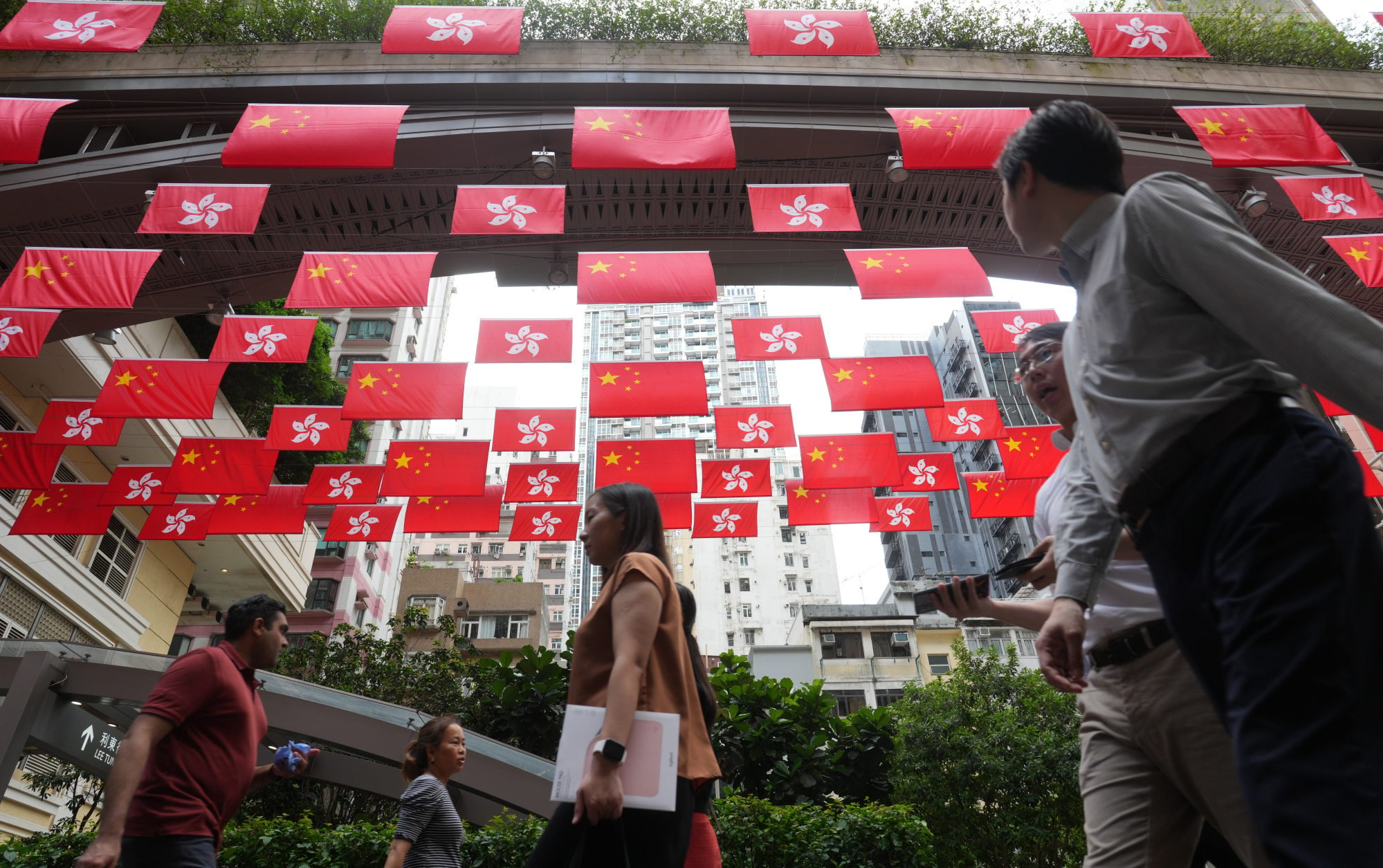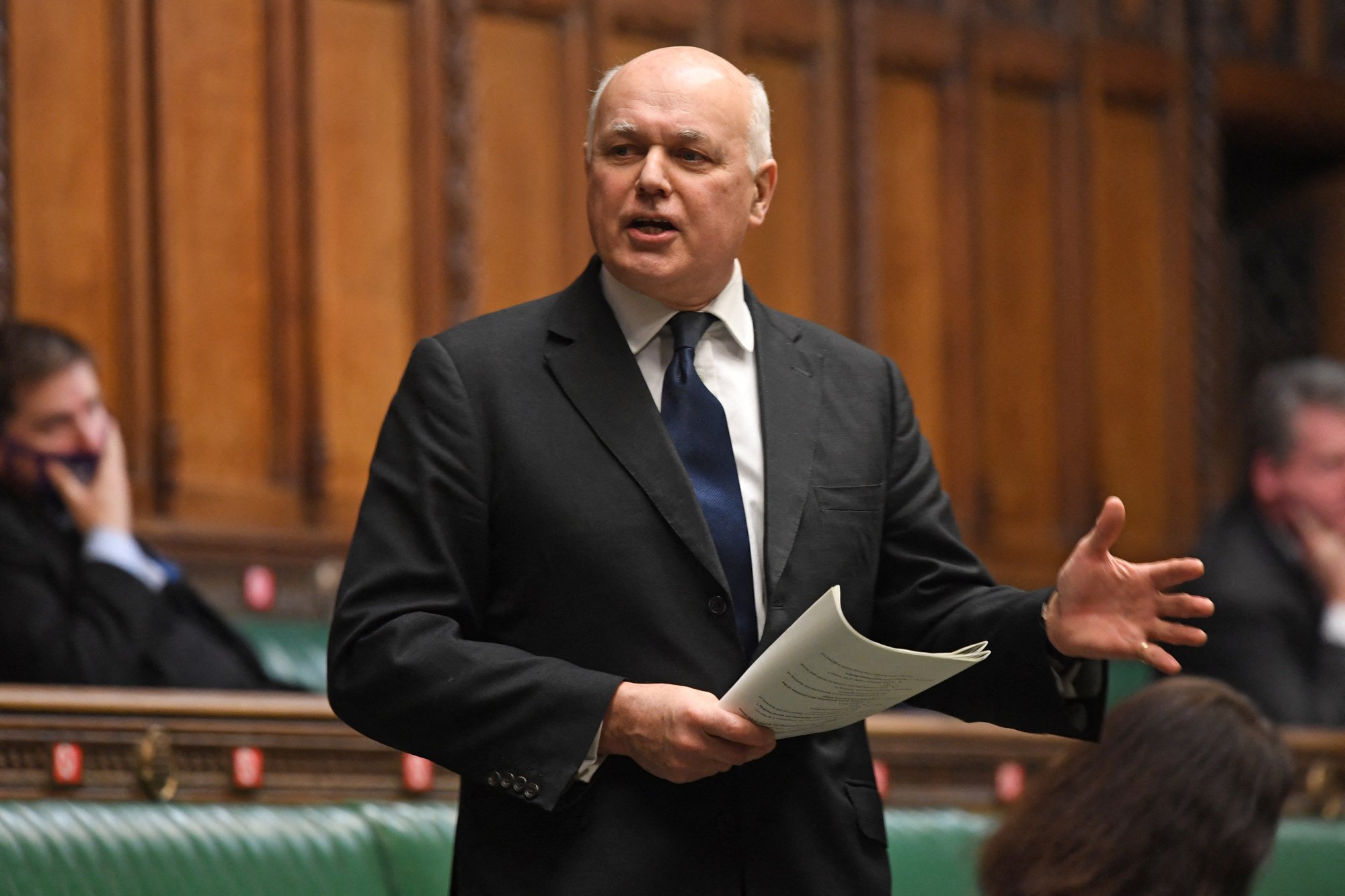
Hong Kong and Beijing condemn 8 members of EU Parliament for slandering national security law and calling for sanctions
- Letter calls for European Member States and the European Commission to work to secure the immediate release of all people detained under the security law
- Hong Kong government earlier accused American, British politicians of making ‘unfounded and fact-twisting remarks’ about Beijing-imposed legislation
A government spokesman on Saturday accused the eight members of the European Parliament of smearing the city’s national security law, which Beijing imposed on the city on June 30, 2020, in the wake of the 2019 social unrest.
“The Hong Kong government despises such so-called ‘sanctions’ and shall never be intimidated. It will continue to resolutely discharge the responsibility of safeguarding national security,” the spokesman said.

A spokesman for China’s foreign ministry office in Hong Kong also defended the security law, saying it had restored public order following the 2019 protests.
“In disregard of facts and the will of the people, some members of the European Parliament slandered the national security law and attempted to harm the law-based administration of Hong Kong, which fully exposed their sinister motive for disrupting the city,” he said.
At the centre of the row was a letter signed by eight members of the European Parliament and addressed to President of the European Commission Ursula von der Leyen on Friday, in which they called for European member states and the European Commission to work to secure the release of all people detained under the security law.
They also called on them to “consider steps to ensure that Hong Kong and Chinese officials are held accountable” for the current state of the city.
Hong Kong’s leader rebuts ‘badmouthing’ over scope of national security law
On the third anniversary of the national security law’s imposition on Friday, around 30 US Senators issued a joint statement to condemn human rights abuses related to the sweeping legislation.
“They have arrested pro-democracy activists, prosecuted hundreds of political prisoners, obliterated a legislature chosen by the Hong Kong people and pressured Hong Kong’s judicial system to align with Beijing’s political prerogatives.”
The British House of Commons on Wednesday also held a debate to mark the third anniversary of the legislation.

Conservative MP Iain Duncan Smith, a former leader of his party, said: “Prolonged detention without trial continues to raise serious questions about the existence of the rule of law.”
A government spokesman on Friday accused American and British politicians of making “unfounded and fact-twisting remarks” about the Beijing-imposed legislation.
“The US and UK politicians wantonly put politics above the rule of law. Their attempts by despicable political manoeuvres to interfere in Hong Kong’s law-based governance, and undermine the city’s rule of law as well as its prosperity and stability, will only expose their own weaknesses and faulty arguments and be doomed to fail,” he said.
The spokesman said the Western politicians had ignored the impact of the social unrest, which had caused “severe damage to Hong Kong’s society, economy and business environment”.
‘Hong Kong out of political quagmire and should not go down wrong path again’
He emphasised that any legal proceedings in connection with the national security law were taken based on evidence and had nothing to do with the political stance, background or occupation of those arrested.
“The city’s judicial system has always been highly regarded by international communities,” he added.
He said there had been “a lot of badmouthing” of the legislation and dismissed suggestions that people could commit a crime unwittingly under the law.
Lee emphasised that prosecution under national security legislation required proof of criminal intent.
The national security law was imposed by Beijing to crack down on secession, subversion, terrorism and collusion with foreign organisations.
Hong Kong’s leader rebuts ‘badmouthing’ over scope of national security law
As of June 23, 259 people have been arrested for endangering national security, with about two-thirds of the individuals and five companies charged so far, according to the Security Bureau.
Among the total, 80 had been convicted, with some awaiting sentencing. Only 30 of those cases involved the national security law. The remainder were facing other charges under existing legislation.
Colonial-era sedition legislation has been one of the laws commonly used to prosecute individuals. In a recent case, a 63-year-old man was arrested by national security police for allegedly posting “seditious messages” on social media.

